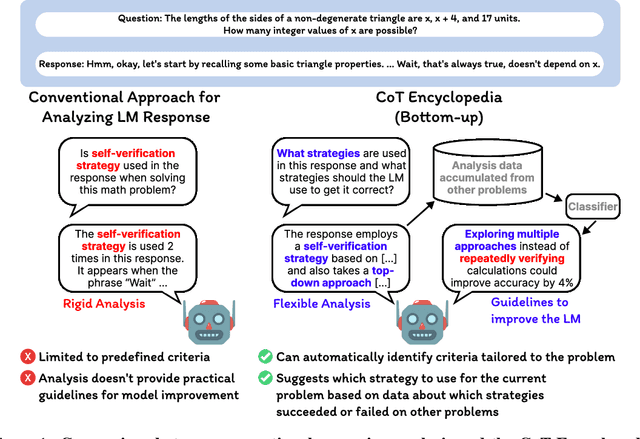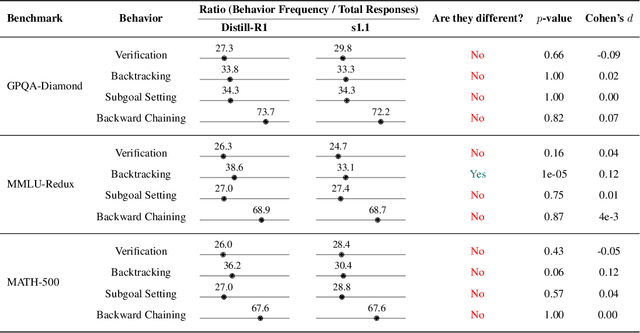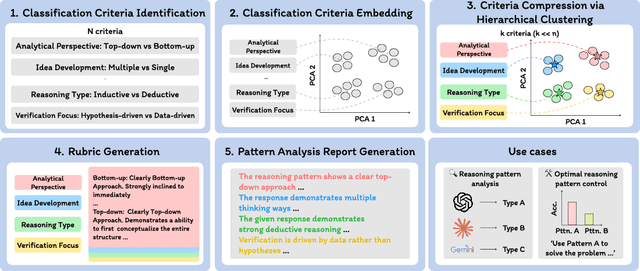Dongyoung Go
Penalizing Transparency? How AI Disclosure and Author Demographics Shape Human and AI Judgments About Writing
Jul 02, 2025


Abstract:As AI integrates in various types of human writing, calls for transparency around AI assistance are growing. However, if transparency operates on uneven ground and certain identity groups bear a heavier cost for being honest, then the burden of openness becomes asymmetrical. This study investigates how AI disclosure statement affects perceptions of writing quality, and whether these effects vary by the author's race and gender. Through a large-scale controlled experiment, both human raters (n = 1,970) and LLM raters (n = 2,520) evaluated a single human-written news article while disclosure statements and author demographics were systematically varied. This approach reflects how both human and algorithmic decisions now influence access to opportunities (e.g., hiring, promotion) and social recognition (e.g., content recommendation algorithms). We find that both human and LLM raters consistently penalize disclosed AI use. However, only LLM raters exhibit demographic interaction effects: they favor articles attributed to women or Black authors when no disclosure is present. But these advantages disappear when AI assistance is revealed. These findings illuminate the complex relationships between AI disclosure and author identity, highlighting disparities between machine and human evaluation patterns.
The CoT Encyclopedia: Analyzing, Predicting, and Controlling how a Reasoning Model will Think
May 15, 2025



Abstract:Long chain-of-thought (CoT) is an essential ingredient in effective usage of modern large language models, but our understanding of the reasoning strategies underlying these capabilities remains limited. While some prior works have attempted to categorize CoTs using predefined strategy types, such approaches are constrained by human intuition and fail to capture the full diversity of model behaviors. In this work, we introduce the CoT Encyclopedia, a bottom-up framework for analyzing and steering model reasoning. Our method automatically extracts diverse reasoning criteria from model-generated CoTs, embeds them into a semantic space, clusters them into representative categories, and derives contrastive rubrics to interpret reasoning behavior. Human evaluations show that this framework produces more interpretable and comprehensive analyses than existing methods. Moreover, we demonstrate that this understanding enables performance gains: we can predict which strategy a model is likely to use and guide it toward more effective alternatives. Finally, we provide practical insights, such as that training data format (e.g., free-form vs. multiple-choice) has a far greater impact on reasoning behavior than data domain, underscoring the importance of format-aware model design.
CUE-M: Contextual Understanding and Enhanced Search with Multimodal Large Language Model
Nov 19, 2024



Abstract:The integration of Retrieval-Augmented Generation (RAG) with Multimodal Large Language Models (MLLMs) has expanded the scope of multimodal query resolution. However, current systems struggle with intent understanding, information retrieval, and safety filtering, limiting their effectiveness. This paper introduces Contextual Understanding and Enhanced Search with MLLM (CUE-M), a novel multimodal search pipeline that addresses these challenges through a multi-stage framework comprising image context enrichment, intent refinement, contextual query generation, external API integration, and relevance-based filtering. CUE-M incorporates a robust safety framework combining image-based, text-based, and multimodal classifiers, dynamically adapting to instance- and category-specific risks. Evaluations on a multimodal Q&A dataset and a public safety benchmark demonstrate that CUE-M outperforms baselines in accuracy, knowledge integration, and safety, advancing the capabilities of multimodal retrieval systems.
Compositional preference models for aligning LMs
Oct 17, 2023



Abstract:As language models (LMs) become more capable, it is increasingly important to align them with human preferences. However, the dominant paradigm for training Preference Models (PMs) for that purpose suffers from fundamental limitations, such as lack of transparency and scalability, along with susceptibility to overfitting the preference dataset. We propose Compositional Preference Models (CPMs), a novel PM framework that decomposes one global preference assessment into several interpretable features, obtains scalar scores for these features from a prompted LM, and aggregates these scores using a logistic regression classifier. CPMs allow to control which properties of the preference data are used to train the preference model and to build it based on features that are believed to underlie the human preference judgment. Our experiments show that CPMs not only improve generalization and are more robust to overoptimization than standard PMs, but also that best-of-n samples obtained using CPMs tend to be preferred over samples obtained using conventional PMs. Overall, our approach demonstrates the benefits of endowing PMs with priors about which features determine human preferences while relying on LM capabilities to extract those features in a scalable and robust way.
Aligning Language Models with Preferences through f-divergence Minimization
Feb 16, 2023



Abstract:Aligning language models with preferences can be posed as approximating a target distribution representing some desired behavior. Existing approaches differ both in the functional form of the target distribution and the algorithm used to approximate it. For instance, Reinforcement Learning from Human Feedback (RLHF) corresponds to minimizing a reverse KL from an implicit target distribution arising from a KL penalty in the objective. On the other hand, Generative Distributional Control (GDC) has an explicit target distribution and minimizes a forward KL from it using the Distributional Policy Gradient (DPG) algorithm. In this paper, we propose a new approach, f-DPG, which allows the use of any f-divergence to approximate any target distribution. f-DPG unifies both frameworks (RLHF, GDC) and the approximation methods (DPG, RL with KL penalties). We show the practical benefits of various choices of divergence objectives and demonstrate that there is no universally optimal objective but that different divergences are good for approximating different targets. For instance, we discover that for GDC, the Jensen-Shannon divergence frequently outperforms forward KL divergence by a wide margin, leading to significant improvements over prior work.
 Add to Chrome
Add to Chrome Add to Firefox
Add to Firefox Add to Edge
Add to Edge